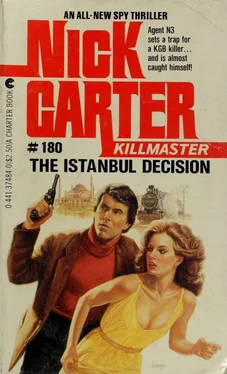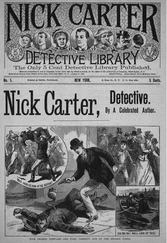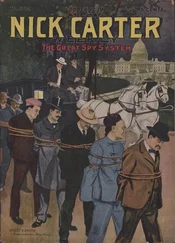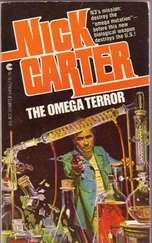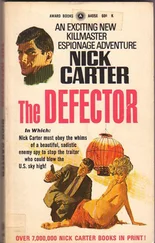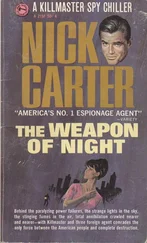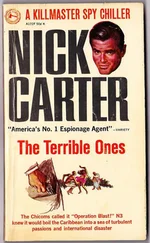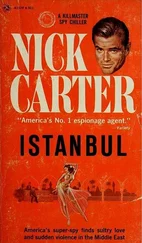"All right," he said at last, pulling a card from his pocket. "Show this to the receptionist at the base hospital at Camp Peary at fourteen hundred hours tomorrow. I'm afraid we're going to have to do a little surgery on your face."
"I don't care. Do whatever you must."
He took her chin in his hand and looked into her eyes. "Good girl," he said.
* * *
The next afternoon Carter placed a call to an unlisted number in Washington, D.C., and was told the «subject» had been accepted and the «experiment» would begin as planned. Thus he knew that Cynthia Barnes, nee Katerina Burjeski, had made her appointment at Camp Peary and that the CIA-selected doctors had found her suitable for surgery. That night he packed a bag and caught a plane for Phoenix.
His eventual destination was a small dude ranch on the outskirts of Tempe. Ostensibly it was a run-down tourist attraction that had seen better days, but in reality it was a rest haven for the agents of AXE, the super-secret information gathering and political action organization of which Carter was a charter member. AXE was doubly secret, secret even from the Central Intelligence Agency, its funding hidden in a maze of budget referrals and footnotes, and finally tucked safely into the President's own Special Expense Account so as to be utterly untraceable. Carter had worked his way through the ranks to the designation N3, Killmaster, a name that spoke more eloquently than any job description as to his purpose and capabilities.
The Litchfield Municipal Airport in Phoenix is rather small, in spite of the city's size, with concourses for deplaning passengers at one end and a large lobby with a double baggage carousel in the center. At the far end, doors lead to the parking lot. Carter arrived at 9:58 P.M. exactly and went directly to the baggage carousel.
He was relatively sure the usual broken-down station wagon with Mesa Verde Dude Ranch printed on the door in flaking gold letters would be waiting for him outside to take him the rest of the way to Tempe, and he was equally confident the driver would have been more than willing to tend to his bags as well, but Carter much preferred to look after his own luggage.
Over his shoulder he carried a small leather bag that contained his toiletries and other personal effects, as well as whatever book he was currently reading, usually a foreign language grammar or contemporary political history. But it was his other case, a finely tooled handmade Brazilian two-suiter, that he missed most whenever he flew, and for which he watched now with a steady gaze as the carousel began to turn and luggage began dropping to the rail. This bag held the small arsenal of personal weapons he had about him always: a 9mm German Luger complete with silencer, affectionately called Wilhelmina; and a small, pencil-thin stiletto. Hugo, that fit in the chamois sheath he always wore on his forearm He possessed one other weapon, dubbed Pierre, a gas bomb that fit high on his left thigh, almost like a third testicle. But it was plastic and was able to pass through metal detectors without so much as a beep, a feat impossible for the other weapons. They had had to be packed away and had been out of his grasp now for almost six hours. The effect on him couldn't have been stronger if he'd been walking around all that time without clothes.
Like a determined little train of cars on a roller coaster, the bags, one by one, rode to the top of the carousel, then tumbled down, presenting themselves with a clunk to the several dozen travel-weary passengers at the bottom who closed in to snatch them up as they rode by. Carter waited, waiting for the familiar outline of his bag, when suddenly he felt the eyes of someone in the crowd staring at him. The alarm bell in the back of his head began to clang, the danger signal tingling in every nerve of his body.
He gave no sign that he knew. Calmly he collected his bag and made his way directly to the men's room.
In the reflection of the concession stand window he saw a man in light slacks and sports coat separate himself from the crowd and move in the same direction, a telltale bulge under the left arm of his jacket. The men's room was deserted except for an older gentleman standing at one of the urinals. He didn't bother to turn around as Carter entered, selected the last toilet stall in line, put a dime in the slot, and went in.
He took down his trousers, sat down, and pulled the suitcase up onto his lap. In a matter of seconds the old man would finish up and go, leaving Carter alone in the room. That, no doubt, was what the man outside was waiting for.
Carter unlocked the case as the old man finished, walked to the sink, and ran the water. Then he stepped to the towel dispenser. It rattled loudly as he cranked out several feet of paper towel.
From under a neatly pressed pair of Yves St. Laurent slacks on the bottom of the case Carter retrieved a wooden box.
The door swung open, the bustle of the terminal suddenly filling the room. The old man had left. Another second and the door swung open again, this time admitting a man whose step was a good deal surer and more distinct than the old man's shuffle.
Carter held his breath while these new footsteps hesitated briefly by the door, then continued on.
Time was running out. Carter found the correct key and opened the box. Wilhelmina gleamed and smelled faintly of gun oil. On the right, also resting in the Styrofoam, was a clip, and along the top of the box nestled a stubby cylindrical silencer. Carter took out the gun and silencer and fitted them together, making only as much noise as absolutely necessary to turn their perfectly matched, well-oiled threads.
The footsteps stopped at the next stall. Carter picked the ammunition clip from the box and held it in his hand. The jingling of coins in a pocket gave Carter his cue. At the same instant the dime slipped into the slot and clattered through the door lock's mechanism. Carter jammed the ammo clip in the butt of the gun, using the sound of the coin to mask the metallic clack as he drove the clip home. The man entered the stall, and Carter levered a live round into the chamber and took off the safety.
The man in the sports coat faced the toilet, whistling faintly as the steady stream of his urine thudded into the water below, his ill-polished Florsheims sticking out beneath his pale trousers scant inches from where Carter watched under the lower edge of the partition.
Then the shoes left the floor. One was raised to the paper dispenser bolted to the partition wall. The bolts creaked slightly under the unusual weight. The other disappeared as it was placed on the toilet seat. Carter twisted around, watching the upper edge of the partition.
The half moon of the man s head appeared above the flat horizon of the partition, and Carter fired, the bullet making two virtually simultaneous sounds in the tiled bathroom: the chunk sound of the explosive gases being dissipated in the silencer, and the thud of the impact on the man's skull, like a strong finger thumping a melon.
The entire line of stalls shook violently as the man's body pitched backward. An interval of silence lasted only a split second, then there was another thud as the body slammed into the small space above the toilet, the gun clattering to the floor. It came to a spinning halt at Carter's feet, a huge Graz-Buyra, standard Komitet issue.
Carter quickly stood and dressed himself. He put the Luger in his jacket pocket and the Russian gun in his suitcase. Then he climbed the partition and peered down into the next stall.
The man was dead, had been since the Luger's bullet pierced the frontal lobe of his brain, passed through his skull, and blew out a large section of the back of his head. The partition wall behind him was splattered with blood, gray matter, and bits of bone. There was nothing to be done about that now.
Читать дальше
